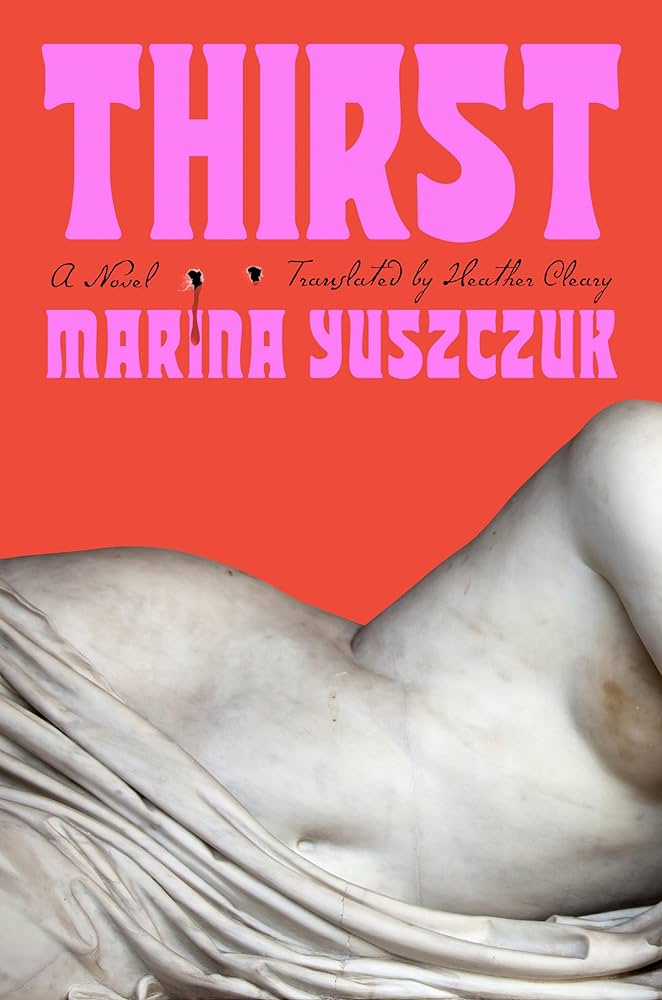Are you searching for a spine-tingling sapphic read to round out your October TBR? Look no further! Thirst is a gorgeous Gothic novel that follows two women across two different time periods as they grapple with their seemingly insatiable desires. Written by Marina Yuszczuk (she/her) and translated by Heather Cleary, Thirst is told in two parts. In Part One, aRead More
A Lush Bisexual Vampire Gothic: Thirst by Marina Yuszczuk
Buy this from Bookshop.org to support local bookstores and the Lesbrary! Thirst by Marina Yuszczuk, originally published in 2020 and translated this year by Heather Cleary, is a dramatic and lushly gothic novel about two women who a string of circumstances going back over a century bring together in modern day Buenos Aires. Yuszczuk revelsRead More
A Feminist, Latin American Vampire Gothic: Thirst by Marina Yuszczuk, translated by Heather Cleary
Buy this from Bookshop.org to support local bookstores and the Lesbrary! Recently translated into English, Marina Yuszczuk’s queer vampire novel, Thirst (Dutton, March 5, 2024), is partly what I’d hoped for in a vampire fiction, and at the same time, it was nothing like what I’d expected. Although it’s a Gothic, vampire novel on the surface, ThirstRead More
